August 2020 update: We believe that EVERY classroom that’s holding in-person learning should contain a HEPA air filter, and experts agree that this will be a key strategy in fighting the spread of COVID-19.
You probably know that in real life (as in, the time before coronavirus, or BC as I’ve been calling it) I’m a huge fan of robust air filters to improve the quality of indoor air. I run two in my home every day, and my dad wrote a popular post about choosing the right filter for your needs.
But, we are no longer living in real life, and lots of you are asking, “do air filters kill coronavirus?” Here’s the deal.
Air Filters & Coronavirus
In addition to their other benefits, HEPA filters can remove bacteria and viruses from the air. Whenever someone in our home is sick, I run our filters with hopes of keeping the rest of us well.
Austin air filters (the ones I use, and the ones we carry in our store) contain true medical grade HEPA that removes 99.97% of all particles larger than 0.3 microns and 95% of all particles larger than 0.1 microns. Scientists say that the size of the new coronavirus is .125 microns, so yes, these filters would capture the virus. Moreover, experts say that the droplets the virus travels in measure at least 1 micron, which is easily captured by a HEPA filter.
Should You Invest in an Air Filter to Kill Coronavirus?
When it comes to coronavirus, you are probably not worried about catching it inside of your own home, so getting an air filter isn’t necessarily the right move for everyone.
If you’re living with a COVID-positive individual then I would definitely have a filter running 24/7, and I would probably do the same if I lived with anyone working in healthcare. Because my husband is going into work, I am running our filters more than normal in case he’s bringing virus in the house on his shoes or clothing.
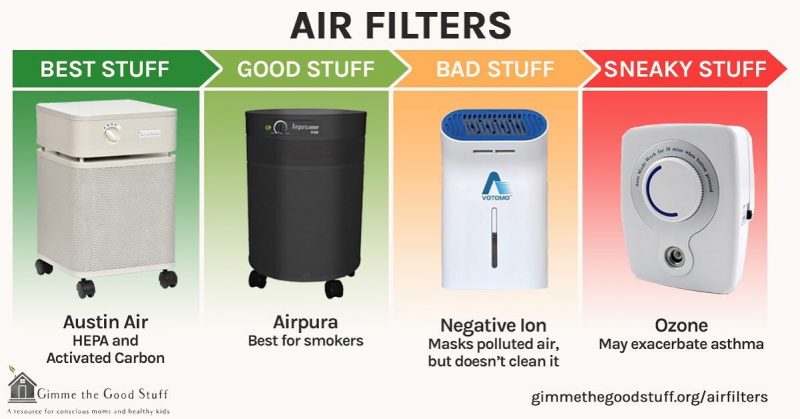
Other Benefits of an Air Filter
While social distancing and hand-washing are clearly the most important daily practices that will reduce your personal risk of contracting this virus, there are two other considerations that I’ve recently read about that make a case for using an air filter.
1) Indoor air quality is notoriously worse than outdoor, even if you’re using non-toxic cleaning products. Cooking in home is a major source of indoor air pollution, and these days we are cooking more and spending just so freaking much time inside.
2) There is apparently a link between living in areas with poor air quality and experiencing severe COVID-19 symptoms. This is a good reason to make sure our lungs are as healthy as they can be in case we are exposed.
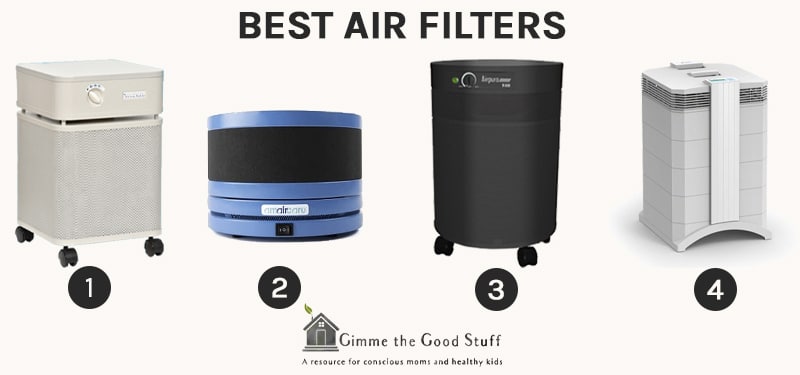
1. Austin / 2. Amaircare / 3. Airpura / 4. IQAir
Which Filter Should You Buy and How Quickly Can You Get One?
If you decide you want to purchase an air filter for coronavirus protection, our contact at Austin Air recommends the HealthMate Plus (the full-sized unit costs $715; there is a junior unit for smaller spaces that goes for $465).
The HEPA technology of this filter removes 95% of all airborne viruses, as well as dust, dander, allergens, airborne chemicals, and VOCs. They also told us they’ve seen a huge increase in demand for this filter, including from hospitals around the country.
If you order here, your filter will ship the next day via FedEx ground. 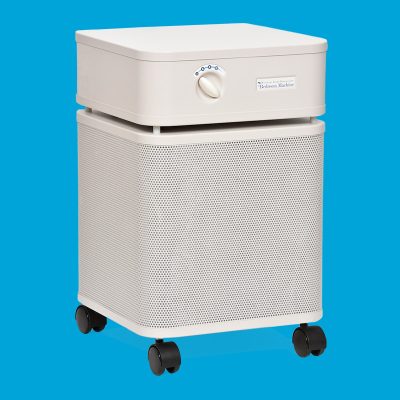
If buying a filter just isn’t in the budget right now, I encourage you to run the stove fan while you’re cooking, open your windows as much as possible, use only toxin-free cleaning products, and most importantly, wash your hands!
Stay sane,

P.S. My dad recently added an additional air filter next to the printer in our warehouse, after reading this alarming study that shows that laser printers seriously degrade indoor air quality–to the point where some scientists say that working near a constantly-running laser printer could be “as bad for you as smoking.”
If you liked this post, sign up for our newsletter to be alerted when we publish new content like this!

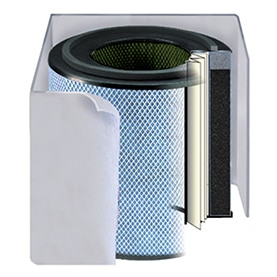
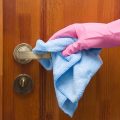
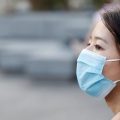
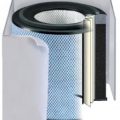
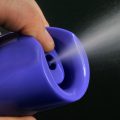


Christopher says
Good article, timely information!
Especially during the coronavirus outbreak, families have been searching for the best protection for their families. But can air purifiers really help protect against germs like bacteria and viruses?
The short answer is yes. If anyone is interested I also wrote an article on this subject: https://wellnessnova.com/best-air-purifiers-bacteria-viruses/
Keep clean and safe, I guess that is basically the same thing!